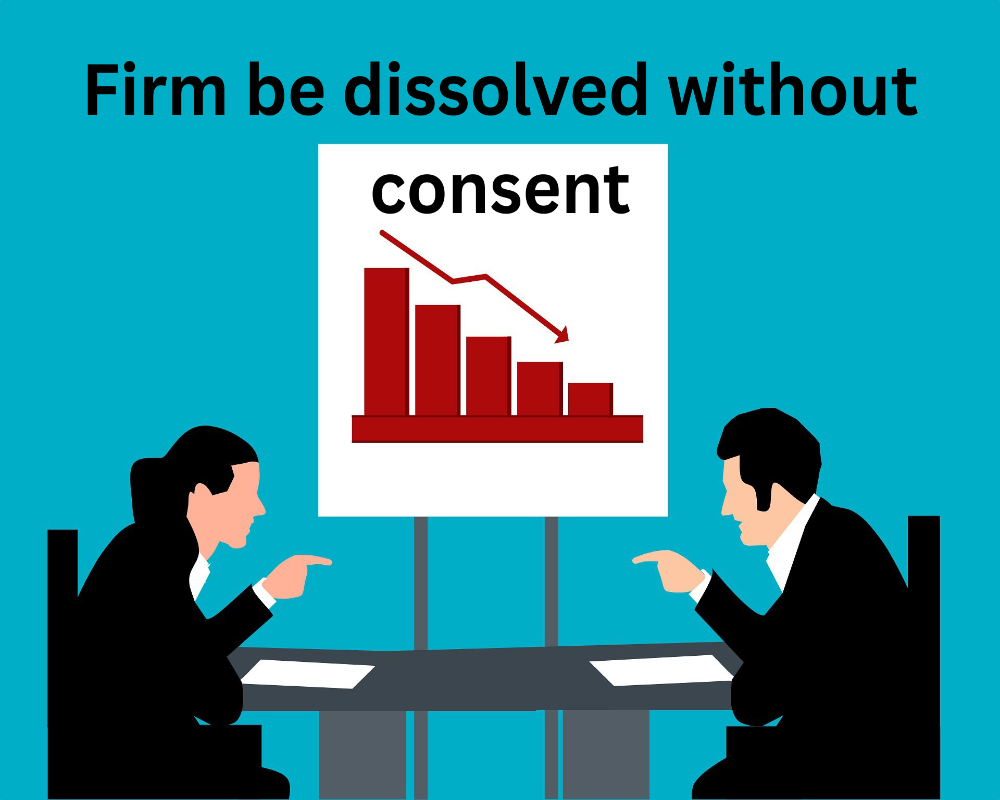Dissolution by Court (Section 44)
A partner can apply to the court to dissolve the firm without the consent of others if certain conditions make it impossible to continue business jointly.
- Grounds include insanity, permanent incapacity, misconduct, breach of agreement, or persistent losses
- The court considers whether the continuation of the firm is reasonably possible
- The applicant need not obtain consent from all partners
- The court’s decision is binding even if others object
- This is a key safeguard against unfair or unworkable partnerships
Dissolution Due to Insolvency or Death
A firm may dissolve automatically or by legal operation if a partner becomes insolvent or dies—without the need for formal consent.
- Insolvency of a partner makes them legally incapable of being a partner
- The death of a partner dissolves the firm unless otherwise agreed in the deed
- Surviving partners may reconstitute the firm with the same or a new name
- Creditors must be settled from the firm and partner assets
- The legal notice is recommended for formal dissolution and liability limitation
Dissolution at Will by One Partner
In a partnership at will, any one partner can dissolve the firm unilaterally by giving written notice to the other partners.
- No consent from others is required
- Notice must clearly state the intention to dissolve
- The dissolution is effective from the date mentioned in the notice
- Other partners must accept the legal consequences
- This applies only if the firm is not formed for a fixed term or specific project
Expiry or Completion of Purpose
If the firm was formed for a specific period or a particular venture, it is automatically dissolved when the term expires or the task is completed.
- No need for fresh consent to end the firm
- Applicable in “particular partnership” or “fixed-term partnership”
- Partners may mutually decide to continue, but formal reconstitution is required
- Financial and legal closure must follow completion
- This prevents forced continuation beyond agreed scope
Illegality or Unlawful Business
A firm is immediately dissolved if its business becomes illegal due to changes in law or regulatory prohibition—consent is irrelevant.
- Example: Government bans the firm’s line of business or revokes its license
- Occurs even if all partners wish to continue
- No formal agreement needed—dissolution is automatic by law
- All operations must cease, and liabilities settled
- Partners may face penalties if the illegal business is continued knowingly


0 Comments